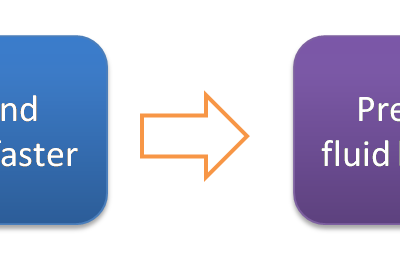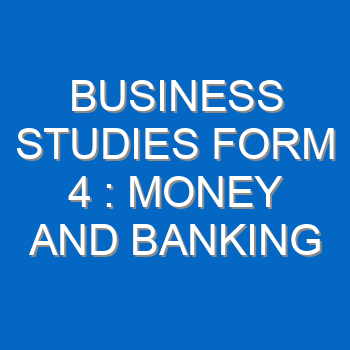Share this:
WAEC WASSCE [SSCE] SYLLABUS FOR TECHNICAL DRAWING
SCHEME OF EXAMINATION
There will be three papers, Papers1, 2 and 3 all of which must be taken. Papers 1 and 2 will be a composite paper to be taken at one sitting.
PAPER 1: will consist of forty multiple-choice objective questions all of which are to be answered in 1 hour for 40 marks. The paper will consist of two sections, Sections A and B as follows:
Section A will consist of thirty questions drawn from the general principles, techniques and uses of plane and solid geometry.
Section B will consist of ten questions in each of two alternative parts: Part I (Building Drawing) and Part II (Mechanical Drawing). Candidates will be required to answer questions in one part only.
PAPER 2: will consist of five essay questions on plane, solid and vector geometry. Candidates will be required to answer any three of the questions in1¾ hours for 60 marks.
PAPER 3: will consist of two sections, Sections A and B to be taken in 2¾ hours for 100 marks.
Section A will consist of three questions requiring sketches of objects, components, symbols and tools used in the Building and Mechanical industries. One of the questions will be compulsory.
Candidates will be required to answer the compulsory question for 20 marks and one of the other questions for 10 marks. The section will require 45 minutes.
Section B will consist of two questions: one on Building Drawing and the other, on Mechanical Drawing. Candidates will be required to answer only one of the questions in 2 hours for 70 marks.
DETAILED SYLLABUS
PLANE GEOMETRY
S/NO. | CONTENTS | NOTES | |
1 | Drawing materials and equipment, types of drawing and applications | Standard size drawing A2 ISO board and drawing sheet, set squares, drawing instruments, protractor and T-square. | |
2 |
Lines, lettering and dimensioning | Types of lines and their uses. Types and styles of lettering, title blocks and border lines. These should conform to BS 1192 and BS 308A. | |
3 |
Division of lines and its applications | Dividing into a given number of equal parts or proportion and other simple exercises involving mathematical problems. | |
4 | Scales and their uses | Plain and diagonal scales, constructions and their applications, including scale of chords. | |
5 | Angles | Types and their constructions. | |
6 | Triangles, quadrilaterals and other polygons | Regular and irregular polygons: properties and their constructions. | |
7 | Circles | Parts, types, properties and their constructions. | |
8 | Tangents and tangency | Construction and application of principles of tangency to spanner, anchors and other tools. | |
9 | Inscribed, circumscribed and escribed figures | Definitions, identification and their constructions. | |
10 | Similar figures and areas | Enlargement and reduction by area and side. | |
11 |
Loci | Definition and construction of straight line, circle, ellipse, parabola, hyperbola, helix, trochoids (inferior and superior) spiral, cycloid, hypocycloid, involutes and link mechanisms. | |
SOLID GEOMETRY | |||
12 | Lines in space and planes | Location of points and lines in space. True length and angle of inclination of a line. Intersecting lines, plane relationships and traces. Types of planes and edge views of planes. | |
13 | Pictorial drawing: isometric, oblique, perspective | Isometric scales and circles, oblique scales and curves. One and two points perspective, including free hand sketching. | |
14 | Orthographic projection | Multiplane,1st | |
15 | Auxiliary projections | Prisms, cones, cylinder, cube, pyramid (right and oblique), including second auxiliary projection. | |
16 | Sectional views and true shapes | True shape of sections of prisms, cylinders pyramids and cones, (ellipse, parabola, hyperbola, circle and triangle). | |
17 | Development of surfaces | Surfaces of right and oblique pyramids, prisms, cylinders, cones and their truncated parts and frustum .Transition pieces. | |
18 | Intersection /Interpenetration | Intersections of cylinders, cones, prisms and pyramids. | |
SYMBOLS AND CONVENTIONS | |||
| Symbols and conventions used in plane and solid geometry | Example, the symbol used to indicate the diameter of a circle. | |
VECTOR GEOMETRY
S/N | CONTENTS | NOTES |
20 | Forces: co-planer,con-current and parallel | Graphical determination of resultant, using Bow’s notation. Equilibrant and reaction using triangle and polygon of forces. |
21 | Simple framed structure | Determination of reactions and internal forces of members and nature of forces. |
22 | Shearing force and bending moment diagrams | Simple supported beams and cantilevers with concentrated and uniformly distributed loads. |
23 | Centre of gravity of lamina | Simple geometrical shapes. |
NOTE: Vector Geometry is for candidates in Ghana only and will be examined in Paper 2.
BUILDING DRAWING
The recommendations of the current BS 1192 (metric) should be followed.
S/NO. | CONTENT | NOTES |
1 | Freehand sketching and identification of building tools | Both pictorial and orthographic sketches of building tools. |
2 | Foundations and Floors | Types and parts of foundations and floors. |
3 | Openings – windows, doors and arches | Types and parts of doors, windows and arches. |
4 | Stairs and staircases | Parts and types of staircases. |
5 | Roofs | Types and parts of roofs. |
6 | Constructional details of parts of buildings | Includes wall, column, beam, lintel, etc. |
7 | Working drawings of buildings | Orthographic projections and sectional views. |
8 | Building materials, freehand sketching, symbols and conventions | Including electrical and plumbing fittings. |
MECHANICAL DRAWING
The recommendations of the current BS 308A (metric) should be followed.
S/NO. | CONTENT | NOTES |
1 | Freehand sketching and identification of mechanical tools | Both pictorial and orthographic sketches of mechanical tools. |
2 | Dimensioning | Limits and fits, allowances, tolerances; emphasis on correct techniques. |
3 | Screw threads, fasteners and locking devices | Include conventional representation, construction and their applications. |
4 | Sectioning | Full,half-part,offset,broken,removed,aligned and revolved. |
5 | Pictorial drawing | Isometric and oblique drawing; including freehand sketching. |
6 | Working and assembly drawing. | Orthographic and sectional views. |
7 | Symbols, conventions and abbreviations | Include electrical and plumbing fittings and welding symbols. |
LIST OF RECOMMENDED TEXTBOOKS
S/N | TEXT BOOKS | AUTHORS | PUBLISHERS |
1 | TECHNICAL DRAWING FOR SCHOOL CERTIFICATE AND G.C.E (Metric Edition) |
J.N GREEN |
SPECTRUM BOOKS |
2 | ENGINEERING DRAWING with worked examples 1 & 2 (3rd edition) | M.A PARKER AND F.PICKUP | NELSON THORNS LTD |
3 | GEOMETRIC AND ENGINEERING DRAWING | K.MORLING | |
4 | GEOMETRIC AND TECHNICAL DRAWING | A.YARWOOD | ELBS with NELSON |
5 | FOUNDATION OF TECHNICAL DRAWING | A.PARKISON | |
6 | TECHNICAL DRAWING with Mechanical Engineering & Drawing option | W.E.KUDOR |





